Zika virus is a virus that transmits through the bite of an infected mosquito particularly the Aedes aegypti, a similar species, causing Dengue, Chikungunya, and Yellow Fever in humans.

By Maria Kausar
Key points!!!
• A pregnant lady, infected with Zika can pass it to her baby. Zika causes a birth defect known as microcephaly with many other brain disorders.
• Zika virus transmits through the bite of a mosquito infected with Zika virus
• Females who are pregnant or going to get pregnant, avoid a visit to an area infected with Zika virus or the area where mosquito fauna is in excess, as chances of getting Zika are more in these areas.
• If your sex partner either male or female is infected with Zika, avoid unsafe sex or use safe methods of sex like the condom method, every time in your sex practice
• In case of any doubt of Zika infection, the pregnant females must visit their health care professionals.
What is Zika Virus?
Zika virus is a virus that transmits through the bite of an infected mosquito particularly the Aedes aegypti, a similar species, causing Dengue, Chikungunya, and Yellow Fever in humans. Zika is notorious for pregnant females as it causes serious problems in the baby during pregnancy. If a female is pregnant and gets infected with Zika, she can directly pass it to her newborn. Zika virus causes serious brain disorders in infants, a serious defect of brain microcephaly is caused by it, with multi links in causing other problems for the baby too.
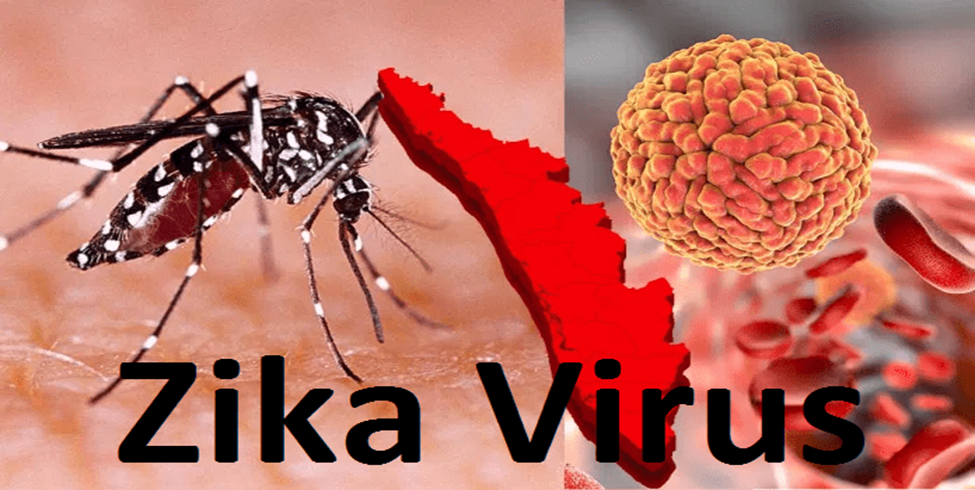
How does Zika spread in humans?
Zika virus spreads through following ways:
• Through the bite of mosquito: The most common way of Zika spread is a mosquito bite, if a mosquito infected with Zika bites you, it will transmit the virus in the human body, and if it bites a person infected with Zika fever, then it will get that virus from that person. Zika virus stays for a week in the blood of humans after initial infection, the mosquitoes spreading Zika are called day biters as they bite mostly during the daytime, but can also bite at night time.
• During pregnancy, from mother to child: Though it needs more research, according to professionals, Zika transfers from mother to child during gestation.
• Through sex practice with a Zika infected person: If your male partner is infected with Zika, he’ll pass Zika through his semen affecting the female. A similar case is with a female, she can transfer Zika through vaginal fluid or menstrual blood. Always practice safe sex like the use of a condom to avoid Zika infection.
• Through body tissues and fluids of an infected person: If you are handling body tissues and body fluids like blood or semen of a person infected with Zika in a laboratory or blood transfusion section, you may get Zika through this handling.
According to the Centers for Disease Control and Prevention (CDC), Zika is continuously spreading around the globe. In the areas where the mosquito population is increasing, Zika is also growing in these zones, known as Zika-affected zones. The first case of Zika in humans was reported in 1952, with its outbreaks reported in tropical Africa, America, Pacific Islands, and Asia (Southeast region). It is going to increase in these regions day by day causing serious health issues.
Pregnant females should avoid a visit to the infected areas where Zika is prevalent, as their risk of getting Zika infection is higher. In case of emergency, quickly consult your doctor to take necessary precautionary measures regarding sex and pregnancy, e.g., use of condoms or dental dam to avoid any sexually transmitted disease.
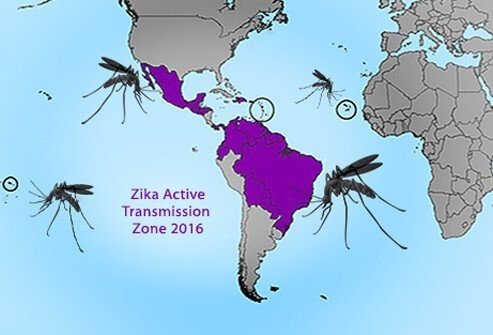
How does Zika affect the baby in pregnancy?
Zika virus causes microcephaly with a diffused skull and serious brain issues in the baby during the pregnancy. Microcephaly is the condition where the head of the baby is smaller in size than the expected size of babies of the same age and sex. Microcephalic babies have small-sized brains without proper development of the brain. Not all Zika infected females give birth to microcephalic babies, there are certain other brain problems caused by Zika, scientists are doing their best to find out the mechanism of Zika causing microcephaly during pregnancy.


Zika is linked with other problems too, some of those includes:
• Growth complications in the womb
• Miscarriage or death of the baby before 20 weeks of pregnancy
• Nervous or brain damage
• Eye impairment
• Joint issues, limiting the body movement due to muscle
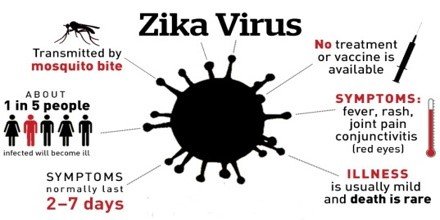
Common signs & symptoms of Zika:
Though many people having Zika virus do not show symptoms, but some of the commonly observed symptoms include:
• Fever
• Rashes on body
• Pain in the joints
• Red eyes or conjunctivitis
Other signs and symptoms include:
• Pain in the muscles
• Headache
• Pain behind the eyes
• Vomiting
• General body fatigue
Symptoms of the Zika virus can last for a few days to a week with very rare chances of death due to it.
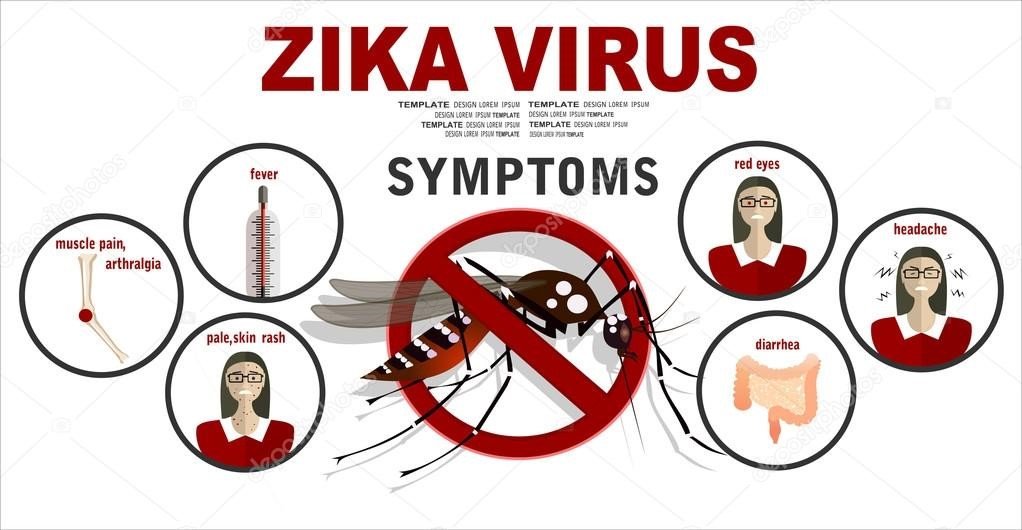
Handling of Zika infection:
There is not any specific treatment for Zika fever, but you can do this to get rid of symptoms:
• Take plenty of rest
• Drink the excess amount of fluids
• Take medicine such as acetaminophen
• Avoid taking aspirin or any other NSAIDs
• Take the advice of your healthcare provider in case if you are taking other medicines for any other ailment
If you and your family are suffering from Zika fever, try to protect yourself from a mosquito bite, as it will help to prevent the spread of the Zika virus in your society.
How to prevent Zika infection?
There is no specific treatment and vaccine available for Zika, the only way to prevent this infection is to protect yourself from the bites of mosquitoes.
Clothing:
• Try to wear full-sleeved shirts with long pants.
• Use permethrin or any other insect repellent spray to treat your clothing
Insect repellent:
• Use registered insect repellent with ingredients like DEET, para methane-diol, picaridin, and IR3535 with labeled instructions to be followed by the user.
• Always follow the instructions given on the products as these are proven safe and active even in pregnant ladies.
• Avoid the use of insect repellents containing lemon eucalyptus oil or para-menthane-diol in young children.
At-home practices:
• Stay in air-conditioned places with closed windows and doors to keep mosquitoes outside.
• Take necessary precautionary measures to control mosquitoes in your surroundings.
• Try mosquito nets in case sleeping outside to avoid mosquito bites.
Sexual transmission:
• Sexual transmission of Zika can be prevented through the use of condoms or not having sex with a person who is positive for Zika
• If your partner is infected with Zika, try to avoid sex for at least 8 weeks from the first day of signs
• If you are pregnant and doubting Zika, get it to check from your doctor, Ultrasound can be used to check the development of your baby, Amniocentesis can also be used to check the presence and level of Zika virus in amniotic fluid. Maternal-fetal medicines specialists take care of you and your baby during pregnancy.
• Zika virus has been reported in breast milk but no record of babies getting infected through breastfeeding.
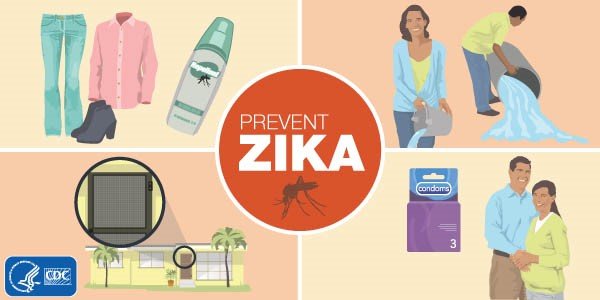
Authors:
1. Maria Kausar, M.Phil. Parasitology, University of Agriculture, Faisalabad.
2. Muhammad Sohail Sajid, Chairman Dept. of Parasitology, University of Agriculture, Faisalabad.
3. Kashif Hussain, PhD. Parasitology, University of Agriculture, Faisalabad.